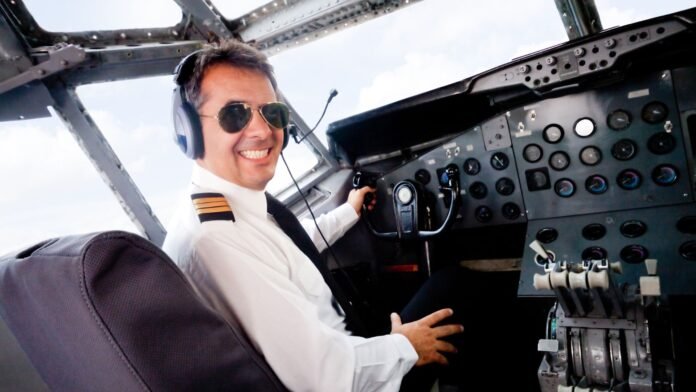Becoming a pilot is a dream for many, but it requires rigorous training and education. Pilots need to have a strong foundation in various subjects to ensure they can handle the complexities of flying an aircraft. Let’s explore what pilots study in school and the key courses that help them succeed.
Core Subjects in Pilot Training
Pilots start with fundamental subjects that provide the necessary knowledge for flying. These include mathematics, physics, and aerodynamics. Understanding these subjects is crucial as they help pilots grasp the principles of flight, navigation, and aircraft performance.
Mathematics: Pilots use math for calculating flight paths, fuel requirements, and understanding weather patterns. It is essential for making quick and accurate decisions during a flight.
Physics: A solid understanding of physics helps pilots understand the forces acting on an aircraft, such as lift, drag, and thrust. This knowledge is vital for controlling the aircraft and ensuring a smooth flight.
Aerodynamics: This subject teaches pilots how air interacts with the aircraft, affecting its movement and stability. Pilots learn about different airfoils, wing designs, and how to optimize performance in various flight conditions.
Specialized Aviation Courses
After mastering the core subjects, pilots move on to more specialized aviation courses. These courses cover the practical and theoretical aspects of flying, ensuring that pilots are well-prepared for real-world scenarios.
Flight Training: This is the most critical part of a pilot’s education. It includes hands-on training in simulators and actual aircraft. Pilots learn how to handle takeoffs, landings, navigation, and emergency procedures. Flight training is often conducted at dedicated facilities, such as the Top Airlines Center in Neemuch.
Navigation: Pilots must be adept at navigating using various tools and techniques. They learn about different types of navigation systems, including GPS, VOR (VHF Omnidirectional Range), and NDB (Non-Directional Beacon). Accurate navigation ensures that pilots can find their way even in challenging conditions.
Meteorology: Weather plays a significant role in aviation. Pilots study meteorology to understand weather patterns, storms, and how to avoid dangerous conditions. This knowledge helps them plan safe routes and make informed decisions during a flight.
Airport Management Courses
In addition to pilot-specific training, many pilots also take airport management courses. These courses provide a broader understanding of the aviation industry and its operations. Airport management courses in Neemuch offer insights into airport operations, air traffic control, and ground services.
Airport Operations: Pilots learn about the various functions of an airport, including runway management, security, and passenger services. This knowledge is essential for coordinating with ground personnel and ensuring efficient operations.
Air Traffic Control: Understanding the role of air traffic controllers helps pilots communicate effectively and follow instructions during takeoff, flight, and landing. This coordination is crucial for maintaining safe and orderly airspace.
Ground Services: Pilots also study ground services, such as fueling, maintenance, and baggage handling. Knowing these aspects helps pilots appreciate the importance of ground crew and ensures smooth operations on the ground.
Continuing Education and Certifications
Pilot training does not end with obtaining a license. Pilots must engage in continuing education and obtain various certifications to advance their careers. These certifications include instrument ratings, multi-engine ratings, and type ratings for specific aircraft.
Instrument Rating: This certification allows pilots to fly in various weather conditions using instruments alone. It requires additional training and practice in simulators and real aircraft.
Multi-Engine Rating: Pilots must obtain this rating to fly aircraft with more than one engine. It involves learning how to manage multiple engines and handle emergencies related to engine failures.
Type Rating: For each new type of aircraft a pilot wishes to fly, they must obtain a type rating. This involves specific training on the aircraft’s systems, performance, and handling characteristics.
In conclusion, pilot training is a comprehensive process that covers a wide range of subjects and practical skills. From core subjects like mathematics and physics to specialized courses in navigation and meteorology, pilots must master various areas to ensure safe and efficient flights. Additionally, airport management courses in Neemuch provide a broader understanding of the aviation industry, helping pilots excel in their careers. With dedication and continuous learning, aspiring pilots can achieve their dreams and take to the skies with confidence.



